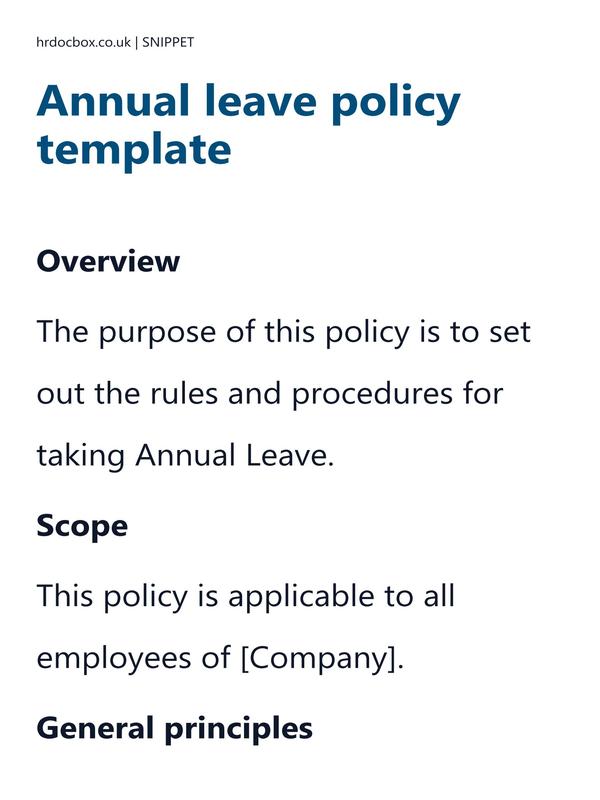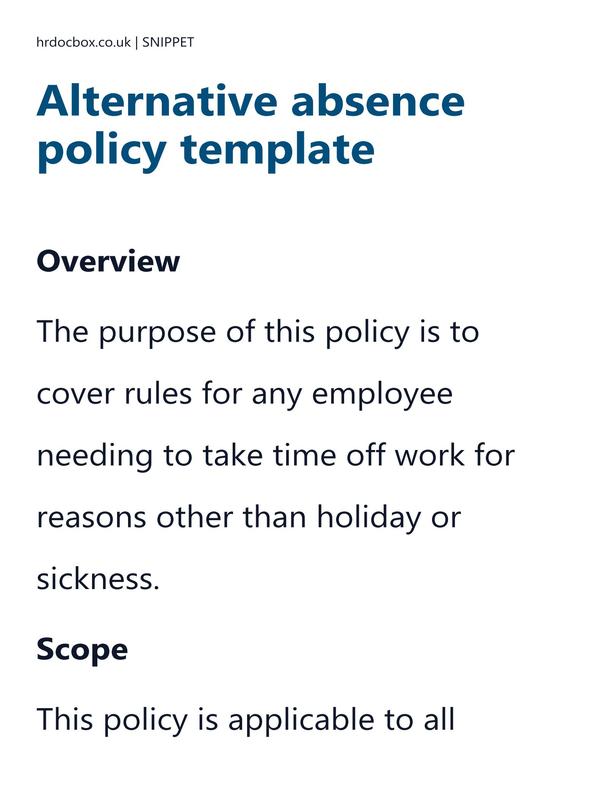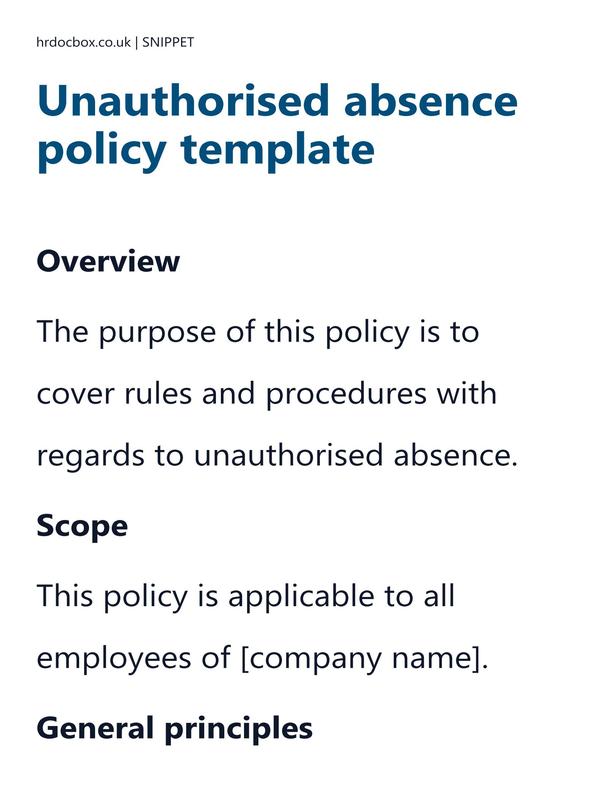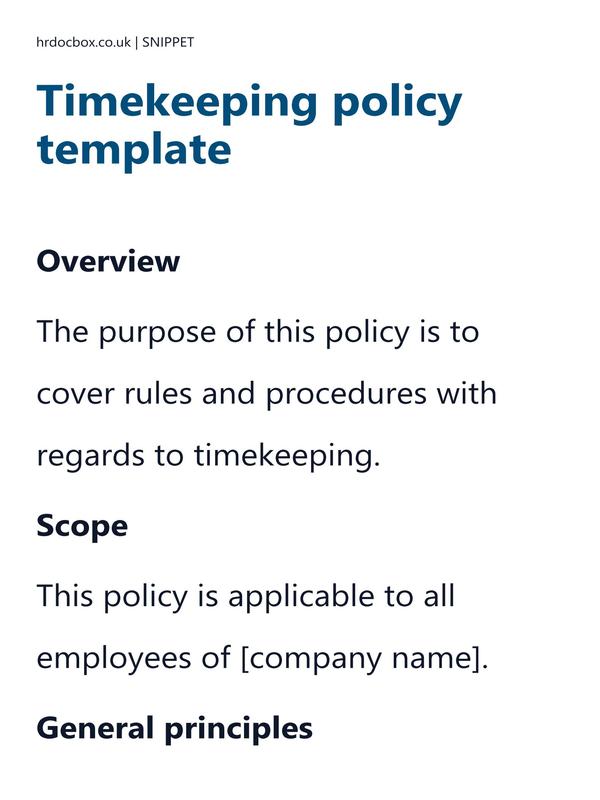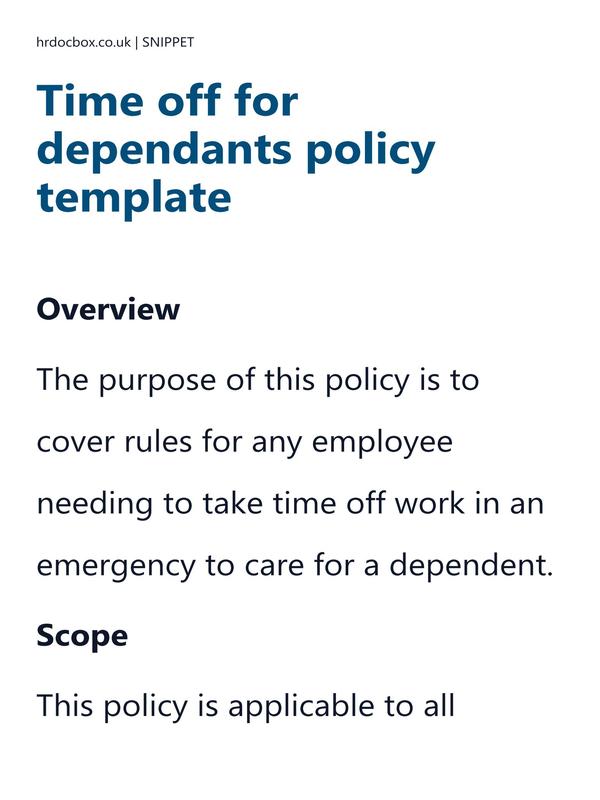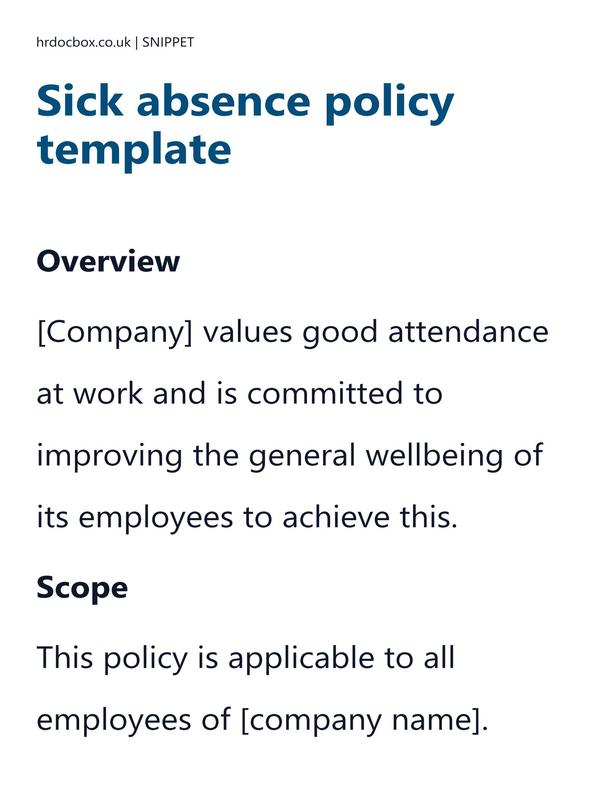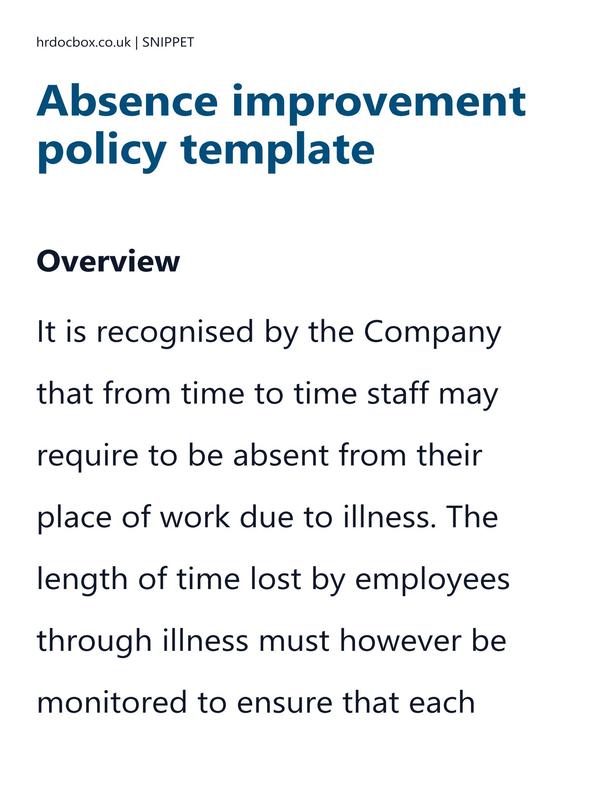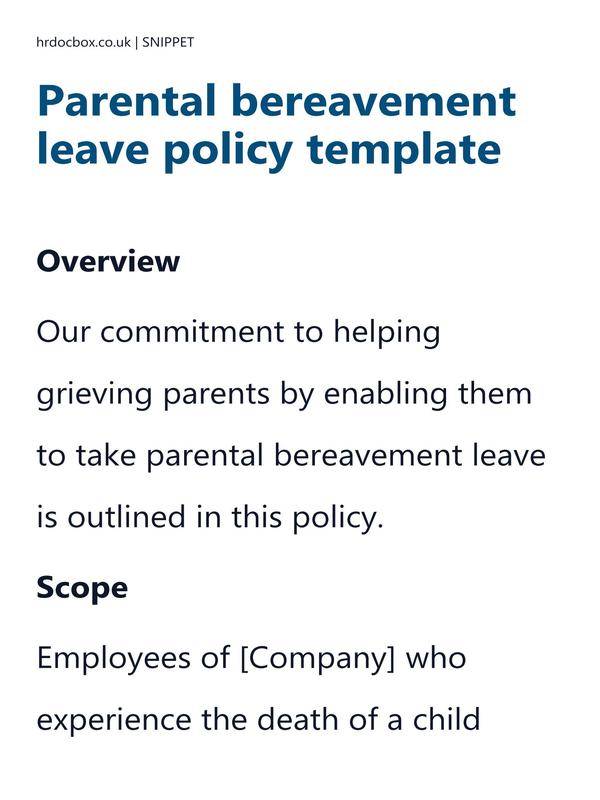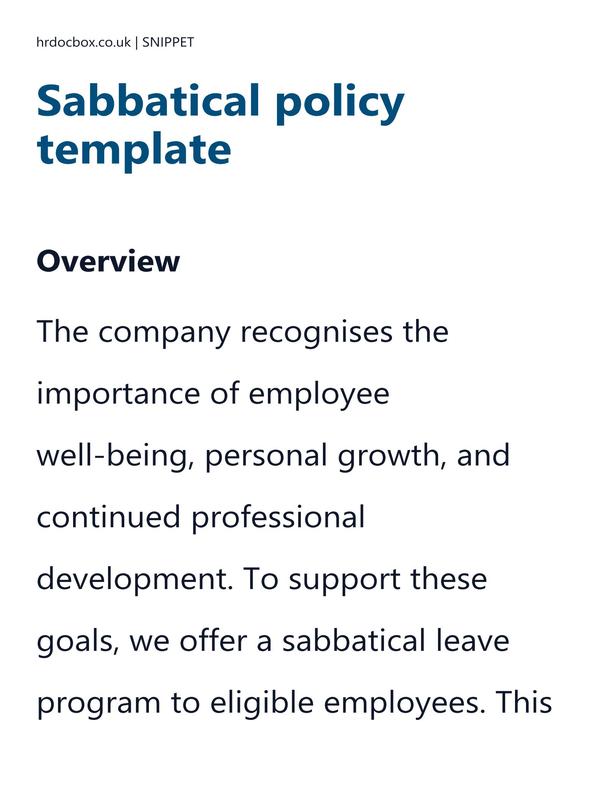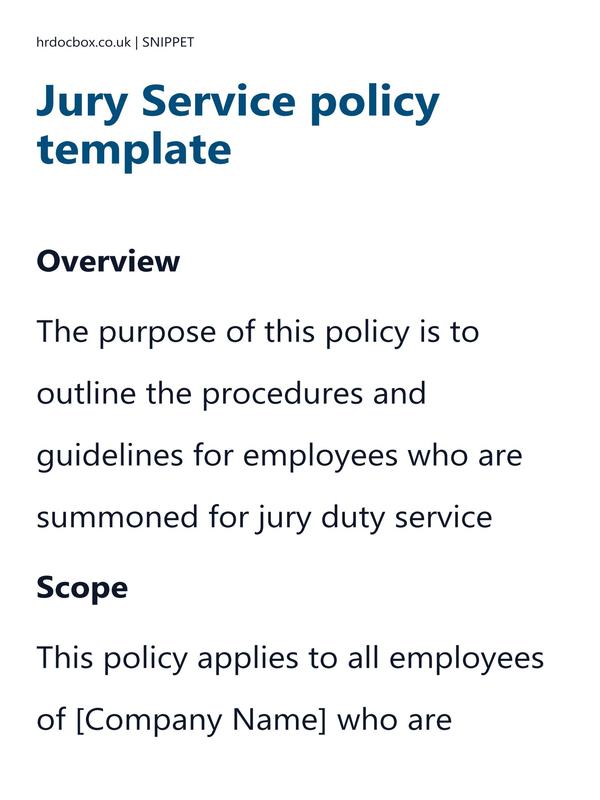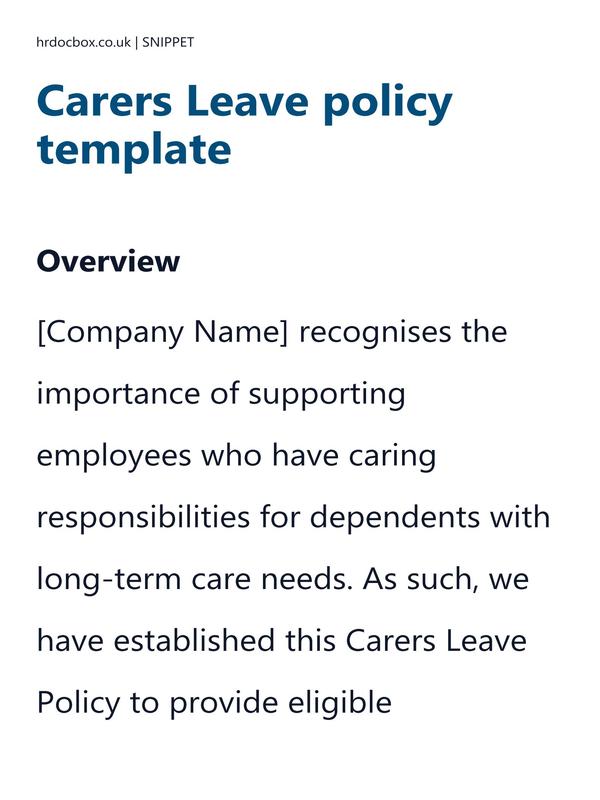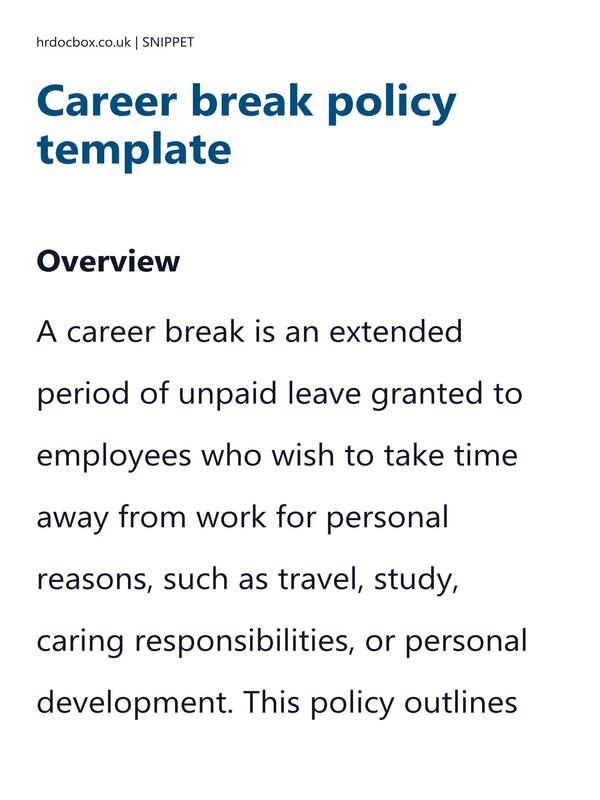Absence and attendance policy templates
Our Absence and Attendance Policy Templates address absenteeism challenges, promoting a productive and accountable work environment.
If you need policies to communicate your company rules and support regarding absence and attendance, these policy templates provide an effective legal framework.
They will assist you to help your employees understand common issues such as:
- How you approach work-life balance
- How you handle employees with an unreasonable level of absence
- How you support everyone to be healthier and provide good employee wellbeing
By addressing these subjects in a formal policy, you will set out good expectations at an early stage, and it will allow you to deal with any issues reasonably and effectively.
- 13 Absence And Attendance templates.
- Includes all Absence And Attendance templates, plus 12 months' access with all updates to the Absence and attendance policy templates provided free of charge and notified to you.
- UK-specific accuracy.
- Instantly download templates as Word / PDF / plain text, or send by email.
- The Absence and attendance policy templates will SAVE you up to 9 hours drafting & research. Save cost. Reduce risk.
Absence and attendance
Absence and attendance policies are put in place by organisations to provide guidelines and procedures for managing employee absences and attendance. These policies serve several purposes, including:
-
Providing clarity: An absence and attendance policy can provide employees with clear guidelines and expectations regarding their attendance and absence from work. This can help to minimize confusion and reduce the risk of misunderstandings between employers and employees.
-
Promoting consistency: By establishing clear procedures for managing employee absences and attendance, an absence and attendance policy can help to promote consistency and fairness in how absences are managed across the organisation.
-
Ensuring compliance: An absence and attendance policy can help to ensure that the organisation is complying with relevant laws and regulations related to employee leave.
-
Reducing costs: By establishing clear procedures for managing employee absences, an absence and attendance policy can help to reduce costs associated with absenteeism, such as lost productivity and increased staffing costs.
-
Managing risk: An absence and attendance policy can help to manage the risk of legal claims related to employee leave by ensuring that the organization is following established procedures for managing employee absences.
Overall, absence and attendance policies are important tools for organisations to ensure that employee absences are managed effectively, fairly, and in compliance with relevant laws and regulations.
Absence and attendance templates are essential for clearly defining company policies and setting consistent employee expectations around Absence and attendance arrangements.
Compliance
Compliance
-
The Equality Act 2010: This legislation prohibits discrimination on the basis of protected characteristics such as age, disability, gender reassignment, race, religion or belief, sex, and sexual orientation. When developing attendance policies, it's important to ensure that they do not discriminate against any particular group of employees or disadvantage individuals with protected characteristics.
-
The Working Time Regulations 1998: This legislation sets out the maximum number of working hours per week, as well as minimum rest breaks and holidays for most workers. Employers must ensure that their attendance policies comply with these regulations and do not require employees to work longer hours than is legally allowed.
-
The Health and Safety at Work Act 1974: This legislation places a duty on employers to ensure the health, safety, and welfare of their employees. Employers should consider how their absence and attendance policies might affect employee wellbeing and should take steps to ensure that their policies do not compromise employee health or safety.
-
The Data Protection Act 2018: This legislation sets out the requirements for the collection, use, and storage of personal data. Employers must ensure that any data collected as part of attendance monitoring is done in compliance with this legislation.
-
The Employment Rights Act 1996: This legislation sets out various employee rights, including the right to statutory sick pay and protection against unfair dismissal. Employers should ensure that their attendance policies comply with these rights and do not place employees in a disadvantaged position.
-
The Maternity and Parental Leave etc. Regulations 1999: This legislation sets out the rights of employees to take time off for family-related reasons, such as maternity leave or parental leave. Employers should ensure that their attendance policies take account of these rights and do not discriminate against employees who exercise them.
-
The Trade Union and Labour Relations (Consolidation) Act 1992: This legislation regulates industrial relations and sets out the rights of employees to join trade unions and participate in collective bargaining. Employers should ensure that their attendance policies do not infringe on these rights or discriminate against employees who are trade union members.
Absence And Attendance workflow
Absence And Attendance workflow
Here we show you which resources to use to effectively improve poor absence, taking into account the different decisions and directions that are likely / possible.
Following this flowchart will ensure that you factor in all eventualities, follow legal / code of conduct or best practice processes, communicate effectively, and reduce the risk of things going wrong.
Frequently Asked Questions about Absence And Attendance templates
Frequently Asked Questions about Absence And Attendance templates
-
Can small businesses use these Absence and attendance policy templates?
Yes. The Absence and attendance policy templates are designed to be flexible and suitable for organisations of all sizes, including small businesses and charities. They follow UK employment law best practice, so even if you don't have an in-house HR team, you can confidently manage Absence and attendance processes and issues.
-
Are these Absence and attendance policy templates up to date for UK law in 2026?
Absolutely. All templates are drafted with the latest ACAS guidance and UK employment legislation in mind. We review and update them regularly, so you can be confident they remain compliant.
-
What types of Absence and attendance policies are included?
Every toolkit includes a complete set of editable policy templates, designed to save time and ensure compliance.
-
How will this help me as an HR manager or business owner?
Purchasing the policies saves you hours of drafting time and reduces the risk of legal mistakes. Instead of starting from scratch, you'll have clear, professional policy templates that you can adapt to your business.
-
Do I get instant access to the policy templates?
Yes. Once purchased, you'll be able to download the Absence and attendance policies instantly. The templates are provided in editable Word or Excel format so you can customise them easily, and PDF format for easy sharing.
-
Can I preview a sample Absence and attendance template before buying?
We provide free examples of our templates here. This gives you a sense of the quality and layout before you commit to purchasing the full toolkit.
-
What if I need a full HR toolkit, not just Absence and attendance templates?
If you're looking for broader support, we also offer library bundles that include Absence and attendance templates along with absence, grievance, and other HR policies. These may be more cost-effective if you need a complete HR library.
-
Why should I use these templates, and not AI to generate them?
The risk of using free AI-generated templates 'without review' includes your legal exposure, missing context, and no awareness of the wider process. Purchasing from us mitigates that risk.


